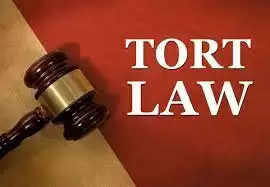Important general defences under the law of tort

In every action for tort, certain defenses are open to the defendant -
1. Volenti non-fit injuria
When a person has consented to the commission of a wrong in the nature of a tort, then he cannot subsequently sue for it. The maxim applies only to:
(a) intentional acts which, otherwise, are tortious;
(b) cases where the plaintiff runs the risk of harm that would otherwise be actionable.
The maxim does not apply to such unlawful acts as no consent, leave or licence can legalise, nor does it apply where there is a breach of statutory duty. It will also not apply where the defendant has been responsible for a dangerous situation and the plaintiff takes the risk to save persons involved in it. Again, the maxim cannot be applied where the defendant is negligent.
2. Inevitable accident
An inevitable accident is that happening which could not have been prevented by the exercise of ordinary care and skill of a reasonable man.
3. Act of God
Accidents which is purely the result of natural calamities and forces of nature like storms, earthquakes, landslide, flood etc.
4. Statutory authority
If the act is sanctioned by an Act of the legislature, the defendant is not liable.
5. Act of the state
An act of state is an act done in the exercise of sovereign power by any representative of the state. The act should previously be sanctioned or subsequently ratified by the sovereign authority and must be directed against some person who is not a citizen of the state at the time of the act. It is difficult to conceive of an act of state as between a sovereign and its subject. If government justifies its actions under the colour of law that act can never be an act of state; its legality and validity must be tested by municipal law and in municipal courts. In England, the doctrine of act of state applies to acts committed outside Her Majesty's Dominions, and further, it is necessary that the injured party should be an alien. The defence of the act of state does not apply in the case of a resident alien because he has the same protection of the law as a citizen has.
The doctrine of act of state has drawn adverse comments and has practically ceased to be effective in India and elsewhere. Its theoretical basis lies in the formalistic approach wherein the creator of law is not bound by law. However, in practice, the major effect of the doctrine was merely procedural. The Crown in England is now sueable under the Crown Proceedings Act, 1947. In India, this doctrine was mainly used as a weapon to secure the annexation of territory by the East India Company and to oust the jurisdiction of municipal courts. Now that India is a free country and former princely states have joined the Indian union and have become an integral part of it, and citizens of these states have become Indian citizens, they can file suits for claims and the government cannot defend itself by pleading the doctrine of act of state. In Virendrasingh v. the State of U.P.19, the court held that a grant of land made by a former Indian prince could not be resumed without legislative sanction. The plea of an act of state as a defence was of no avail. Even in certain matters which are not justiciable according to article 363 of the Constitution, the plea of the act of state was not allowed. Yet the Supreme Court has declared that the doctrine proceeded on a just balance between acquired rights of the private individuals and economic interests of the community and hence refused to reject this doctrine. Subba Rao has called for a halt to this doctrine in his dissenting opinion as it enforces the imperialistic notion of 'might is right. In UsmanAli Khan v. SagarmaP0, the Supreme Court went to the extent of treating Privy Purse as a political pension. In another case, it put pre-merger covenants beyond the jurisdiction of courts. This doctrine which ousts the jurisdiction of courts has no rational basis either in international or constitutional law. Modern India should break away from this common law fetter in the interest of justice and fair development of law.
